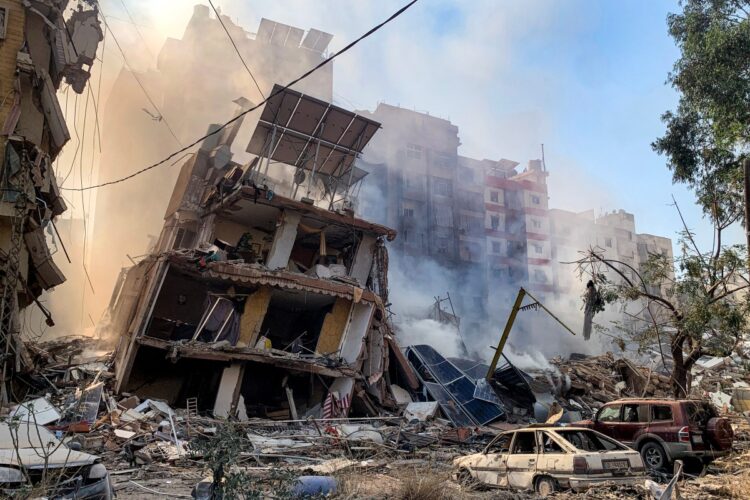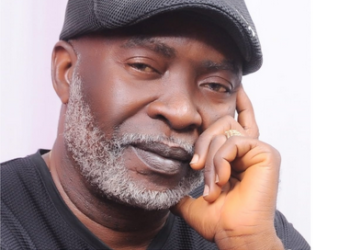Prime Minister Benjamin Netanyahu declared on Sunday that what he called Israel’s “precise and powerful” strikes on Iran had been a success, as his country’s forces pounded targets in Gaza and Lebanon.
The previous day’s strikes by Israeli planes on military targets in Iran had fed fears that the Middle East was spiralling towards an ever wider conflict and triggered global calls for restraint.
An emergency UN Security Council meeting will take place on Monday at Iran’s request, with Tehran calling for it to condemn the strikes.
At home, Iranian leaders played down their importance, saying the strikes had caused only limited damage and killed four soldiers.
Netanyahu, meanwhile, stressed that the raids had served their purpose of avenging an earlier Iranian missile barrage against Israel.
“The attack in Iran was precise and powerful, achieving all of its objectives,” Netanyahu said, in a speech marking the official Hebrew calendar anniversary of the Hamas attack on October 7 last year.
Israel’s strikes were in retaliation for an October 1 attack by Iran, which fired about 200 missiles at Israel, though most were intercepted.
Netanyahu said: “We kept our promise. The air force attacked Iran and hit Iran’s defence capabilities and missile production.”
His speech was interrupted by shouting from relatives of victims of the Hamas attack in the crowd. Netanyahu stood silently for more than a minute during the ceremony, which was broadcast live.
There has been public and diplomatic pressure on the Israeli premier to do more to strike a deal to secure the release of the remaining captives held in Gaza.
– ‘Painful concessions’ –
Israeli spy chief David Barnea is scheduled to head to Qatar on Sunday for talks aimed at restarting negotiations towards a hostage deal.
Families of the hostages have called on the Israeli government to broker an agreement in the wake of the killing of Hamas’ leader Yahya Sinwar earlier this month.
Israeli and US officials as well as some analysts said Sinwar had been a key obstacle to a deal.
Earlier on Sunday, Israeli Defence Minister Yoav Gallant said “painful concessions” would be needed to secure their release and that military action alone would not achieve the country’s war aims.
Against the already charged backdrop, a truck crashed into a crowd of people at a bus stop in central Israel, killing one man and injuring more than two dozen people.
Police did not immediately say whether the incident, near the Mossad spy agency’s headquarters and other Israeli intelligence sites, was an attack or an accident.
In a separate incident, Israeli soldiers killed a man the military said tried to stab them during an operation near Jerusalem, describing it as a “terror attack” against troops.
Despite talk of negotiations, Israel continued to fight in Gaza and Lebanon.
Dense smoke hung over the southern suburbs of the Lebanese capital Beirut on Sunday after a night of bombardment in the southern suburbs, while there were reports of strikes in and around the southern cities of Sidon, Tyre and Nabatiyeh.
Lebanon’s health ministry said at least eight people were killed and 25 others wounded near Sidon.
The war has left at least 1,615 people dead in Lebanon since September 23, according to an AFP tally based on official figures, though the real number is likely to be higher due to gaps in the data.
The Israeli military said early on Sunday it had killed 70 Hezbollah fighters and struck 120 targets in southern Lebanon, while losing five of its own soldiers in ground fighting. It warned residents that they must evacuate more villages it said housed Hezbollah sites.
“For your safety, you must evacuate your homes immediately and move to the north of the Awali River,” military spokesman Avichay Adraee said in a social media post. The Awali is the northern border of Lebanon’s southern governorate.
– ‘Gaza is unbearable’ –
Heavy bombing also continued in Gaza. The Israeli military said it had killed another 40 militants in the territory, despite Gallant saying on Sunday that: “In the south (Gaza), Hamas has ceased to act as a military structure.”
United Nations Secretary-General Antonio Guterres expressed deep concern for the fate of Gaza’s civilians.
“The plight of Palestinian civilians trapped in north Gaza is unbearable,” Guterres’s spokesman said.
Israel several weeks ago began an ongoing major operation in the north of Gaza, in particular around Jabalia and its neighbouring refugee camp.
“The Secretary-General is shocked by the harrowing levels of death, injury and destruction in the north, with civilians trapped under rubble, the sick and wounded going without life-saving health care and families lacking food and shelter.”
Gaza’s civil defence agency said on Sunday an Israeli strike on a school building sheltering displaced Palestinians killed at least nine people. The Israeli military said it was looking into the reported strike.
At the Al-Ahli hospital in Gaza City, Jihad Muqat mourned the death of his wife and two baby daughters whose bodies were pulled from under the rubble in Jabalia camp.
“My darling Lulu, she was three and a half years old and Sama was 12 days old,” he said, adding that he’d already had to bury his two-year-old Lara earlier in the war.
Israel launched the offensive in Gaza a year ago after Hamas’s October 7 attack that resulted in the deaths of 1,206 people, mostly civilians, according to an AFP tally of official Israeli figures.
At least 42,924 Palestinians, a majority of them civilians, have been killed in the Israeli offensive on Gaza, according to figures from the Hamas-ruled territory’s health ministry, which the UN considers reliable.
The war has since drawn in Iran-backed groups across the region, most notably Hezbollah in Lebanon, but also militias in Iraq, Syria and Yemen.
AFP























